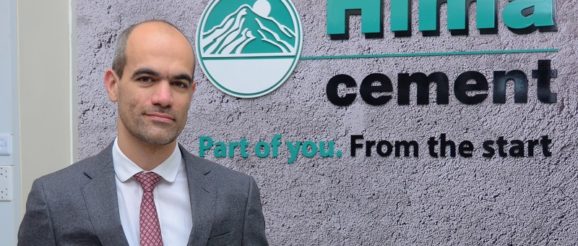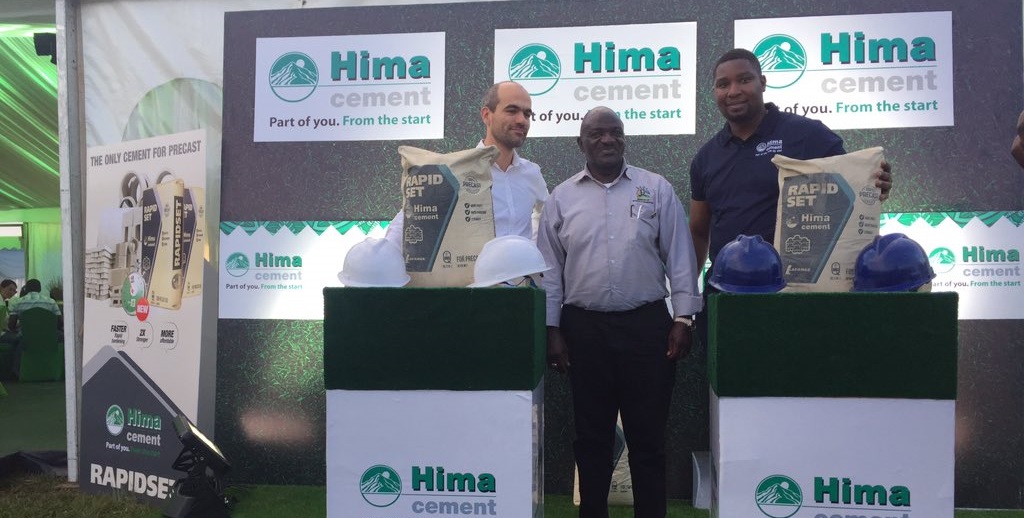EXCLUSIVE INTERVIEW: Jean-Michel Pons, Hima Cement’s new CEO banks on product innovation and recent mega investments to drive growth


You have been in Uganda for about six months now – what is your assessment of the Ugandan cement market? What opportunities do exist for Hima Cement to expand and grow?
We believe the market will continue to grow; we don’t see any macro trend that says differently. The investment in the industry over the last two years has been significant and competition is rife. Whatever the environment, our role is to create the best value for our customers. We have done that through our efforts in innovation, delivering the best solutions to meet the needs of our customers.
In addition to the general
housing and construction sector, we are privileged to be the cement supplier of
choice for iconic projects like the Jinja Nile Bridge commissioned in 2018, the
Kampala-Entebbe Expressway, the on-going construction of the Karuma Dam and
several road projects across the country.
We understand that you have been in other markets such as Moldova, Algeria, Serbia, Russia, and France- anything strikingly similar or different about those markets and the Ugandan market?
The markets are different because of the environment, culture, and geography; however, our challenge is always the same: to deliver the right solution to have durable construction both for the individual home builder and for strategic country projects.
Over the last 4-5 years, we have witnessed two major players enter the Ugandan cement market that was practically a duopoly- how has this impacted your operations? How are you positioning to keep a grip on your market share and possibly grow it?
Competition is good and vital in a developing economy, what is critical is fair play and regulation. With more competition coming in, it gives us more opportunities to differentiate. We hope our customers see and appreciate the difference in what we are offering, in the quality of the service we are providing. We want to create solutions that address customer needs directly, products that are differentiated depending on your needs as a consumer.

We recently launched Rapidset – the only cement for
precast concrete. It has rapid hardening attributes, increasing the effectiveness
of the precast businesses so they can get their products to the market
quicker.
Minecem is a cement solution that was formulated for
the Kibali Gold Mine in DRC back in 2017, again improving the efficiency of
operations of the mine.
We developed Roadcem to improve the quality of the road particularly in Uganda where the soil stability is a challenge due to heavy rains. With such a solution, it reduces the maintenance frequency on the road, and consequently the cost.
One of the players decided to launch with price cuts as a strategy- to which the market has responded with nearly similar cuts. Aren’t you going to bleed yourselves dry?
Market entry promotions are part
of the game and it is only a short term measure. Being part of the
LafargeHolcim Group gives us the advantage to propose to the Uganda market
innovative solutions with additional benefits. We care about our cost daily but
our priority is also to create value for Uganda.
On top of the two new players, both Hima Cement and Tororo Cement have invested in expanded capacity- over the past 2-3 years. Uganda is known to have the lowest consumption per capita for cement, we are rebounding from an economic slowdown, the oil and railway projects are slightly behind schedule, and the Rwanda export market is shaky right now. Did the industry perhaps invest a little bit too much, too soon?
We feel that we have positioned ourselves to take advantage of the market potential in the future. While the economy has slowed down in Uganda, we have seen opportunities open up in the export market, in DRC which is opening up more and the improved stability in South Sudan.

How has Hima Cement been affected by the Rwanda/Uganda diplomatic spat?
Rwanda was a strategic market for us and yes, we have been affected, as have the livelihoods of our distributors and the small team we had in Rwanda. We hope that under the spirit of the EAC and a borderless Africa we shall see this market open up again for mutually beneficial business.
A little while
ago you launched the BonaStore brand- what has been the market response and how
does this inform your plans for the brand?
We launched Bonastore, our retail franchise, in 2016 to provide additional services and value to our customers especially the individual homebuilder. It is a model that has had great success in other LafargeHolcim markets across the world; however, the uptake in the Uganda market has been slow. We are currently reviewing our overall strategy but our main focus is the cement business.
In your view, what are some of the needed policies from especially government that can be put in place to stimulate demand and growth in the sector?
To stimulate further investment in the sector, the government should enact policies to promote growth of the economy in general. This would have a ripple effect on our industry. Particularly, policies that promote growth of local manufacturing, such as fair taxation, reduction of electricity tariffs and improved supply of power.
The construction industry is also looking
forward to the start of the oil and gas project as it will benefit all Ugandan
individuals and the business community.
